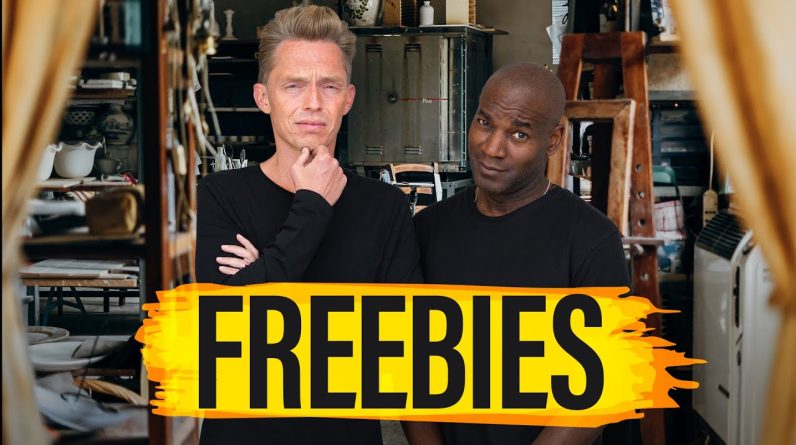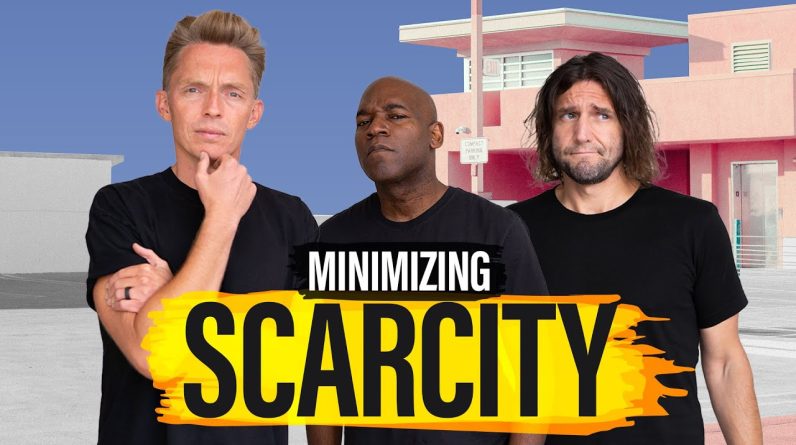
In episode 405 of The Minimalists Podcast, the hosts dive into their thoughts on the “buy nothing” movement. They discuss the concept of exchanging and trading items instead of buying new ones, emphasizing the importance of being conscious and deliberate with our decisions. The episode also touches on topics such as letting go of sentimental items after the death of a loved one, making end-of-life plans, and helping adult children become independent. The hosts provide advice, share personal experiences, and answer listener questions on these various topics. If you’re interested in learning more, you can find the full two-hour episode on their Patreon page.
The Minimalists Podcast also introduces a book called “Buy Nothing, Get Everything” that aligns with the principles of the “buy nothing” movement. The book encourages readers to question their assumptions about consumerism and offers a seven-step guide on how to buy less, give more, and live generously. It emphasizes the idea of abundance versus excess and suggests that being intentional with our possessions can lead to a more meaningful and fulfilling life. The hosts discuss the book’s message and share their own experiences with embracing minimalism and conscious consumerism. If you’re curious about incorporating these principles into your own life, it may be worth checking out “Buy Nothing, Get Everything” for more insights and practical tips.
Table of Contents
The Minimalists’ Thoughts on the ‘Buy Nothing’ Movement
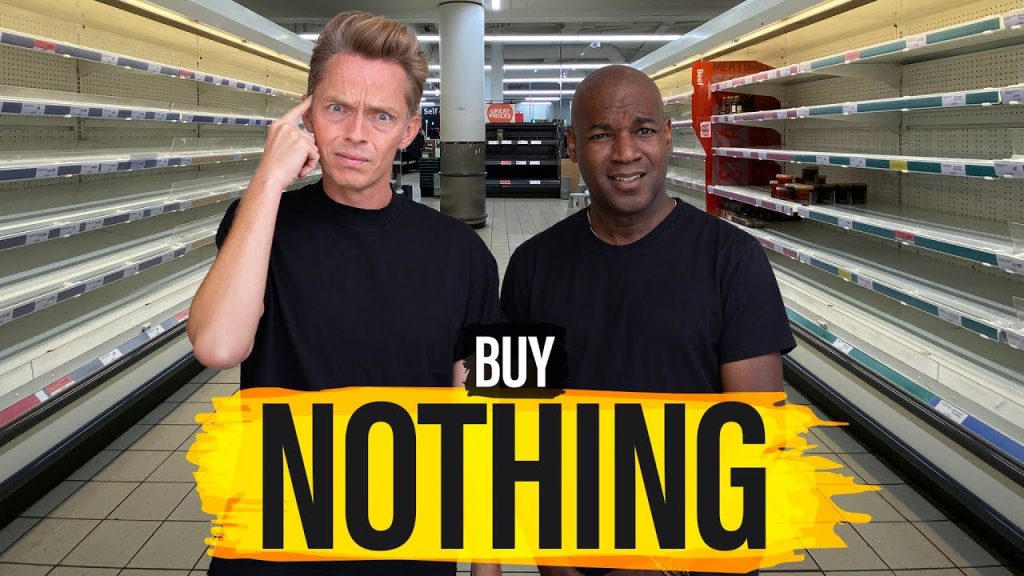
This image is property of i.ytimg.com.
Introduction to the ‘Buy Nothing’ Movement
In episode 405 of The Minimalists Podcast, Joshua Fields Milburn and TK Coleman discuss their thoughts on the ‘buy nothing’ movement. The episode starts with an introduction to the concept of living a meaningful life with less and the idea of being intentional with our decisions. The hosts mention that the ‘buy nothing’ movement is not about completely abstaining from purchasing anything, but rather about questioning our consumerist habits and being conscious and deliberate with our choices.
Discussion of the Efficacy of the Buy Nothing Movement
The hosts delve into a discussion about the efficacy of the ‘buy nothing’ movement. They emphasize that it is not about completely eliminating all purchases, but rather about reducing our consumption by being more intentional. They highlight the importance of questioning assumptions about consumerism and understanding the impact of our buying habits on the environment and society as a whole.
The Concept of Exchanging and Trading in the ‘Buy Nothing’ Movement
The hosts mention a book called ‘Buy Nothing, Get Everything’ which focuses on the concept of exchanging and trading items instead of buying new ones. They discuss the intentionality behind the book and how it encourages people to consider alternatives to traditional consumption. They mention the existence of local groups, such as the Buy Nothing Project, where people can participate in exchanges and find value in items that others no longer need.
The Intentionality Behind the Book ‘Buy Nothing, Get Everything’
The hosts dive deeper into the book ‘Buy Nothing, Get Everything’ and elaborate on the intention behind it. They explain that the book aims to address the issue of excessive consumerism and offer alternatives to buying new items. The authors emphasize the importance of being mindful about our purchases and seek ways to give and receive items without contributing to wastefulness and excess.

This image is property of i.ytimg.com.
Questioning Assumptions About Consumerism
The hosts delve into a discussion about consumerism and the need to question our assumptions about it. They encourage listeners to reflect on their own consumption habits and evaluate whether their purchases truly align with their values and needs. They emphasize that the ‘buy nothing’ movement is about being more intentional and aware of our consumption choices, rather than completely avoiding all purchases.
Setting Boundaries and Adjusting Them in the ‘Buy Nothing’ Movement
The hosts highlight the importance of setting boundaries and adjusting them in the ‘buy nothing’ movement. They acknowledge that minimalism looks different for everyone and that it’s essential to find a balance that works for each individual’s lifestyle. They stress the importance of being flexible and evolving in our approach to minimalism, as what works for one person may not work for another.
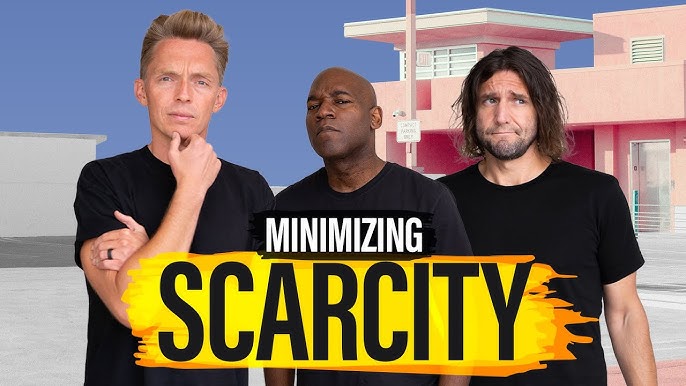
This image is property of i.ytimg.com.
Holding on to Sentimental Items: The Struggle After Losing a Loved One
The episode transitions into a discussion about holding on to sentimental items, particularly after the loss of a loved one. The hosts acknowledge the emotional struggle that often accompanies this process and emphasize the importance of allowing oneself to grieve and heal. They highlight the need to be present with loved ones in the present moment rather than clinging to material possessions.
The Fear of Letting Go and the Importance of Healing
The hosts explore the fear of letting go and the role it plays in holding on to sentimental items. They discuss the importance of healing and the need to process emotions associated with loss. They encourage listeners to consider whether keeping certain items brings them joy or contributes to their overall well-being, and to be open to the possibility of letting go when it aligns with their healing process.
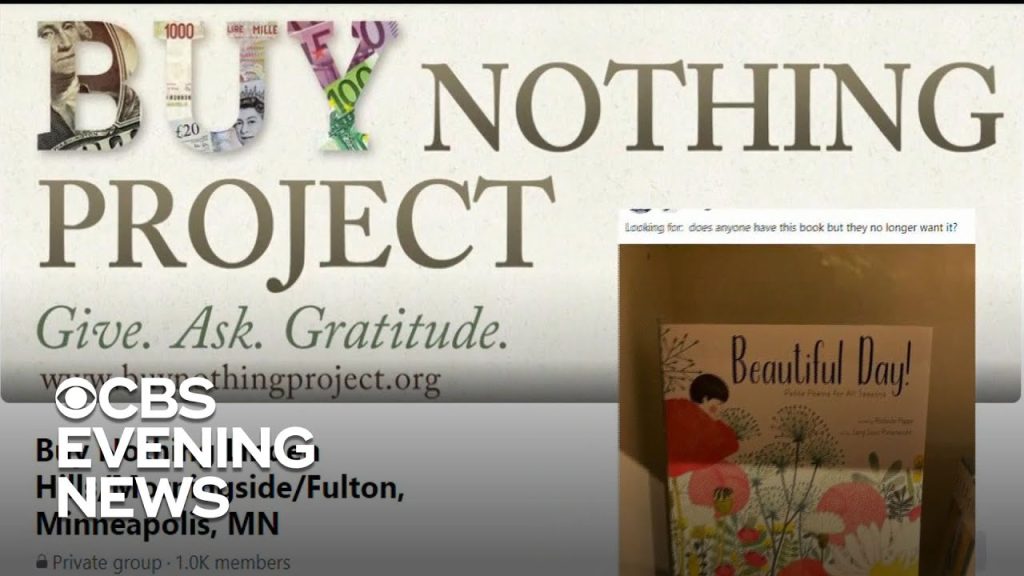
This image is property of i.ytimg.com.
Considering What the Loved One Would Have Wanted
The hosts suggest considering what the loved one would have wanted when deciding whether or not to keep sentimental items. They stress the importance of focusing on the connections and memories associated with the person, rather than solely on the physical objects. They encourage listeners to honor their loved one’s memory in ways that align with their values and bring them joy.
Focusing on Connections Rather Than Material Possessions
The hosts emphasize the importance of prioritizing connections and relationships over material possessions. They suggest shifting the focus from accumulating more stuff to nurturing meaningful connections with loved ones. They encourage listeners to engage in experiences and activities that bring them joy and fulfillment, rather than relying on material possessions for happiness.

This image is property of i.ytimg.com.
The Fear of Death and the Importance of Planning for the End of Life
The hosts transition into discussing the fear of death and the importance of planning for the end of life. They acknowledge that death is inevitable and that planning can help individuals live more intentionally. They stress the importance of considering our values and goals when making end-of-life plans, and encourage listeners to seek guidance and discuss their wishes with their loved ones.
Addressing the Resistance to Making End-of-Life Plans
The hosts address the resistance that many people feel when it comes to making end-of-life plans. They discuss the fear and discomfort associated with confronting mortality, and emphasize the importance of overcoming these barriers. They encourage listeners to reframe their perspective on end-of-life planning as a way to live more intentionally and leave a meaningful legacy.
The Lightning Round: Facing the Fear of Death and Humiliation
The episode includes a lightning round segment where the hosts address questions related to the fear of death and humiliation. They discuss the importance of facing our fears head-on and being honest with ourselves about our fears. They stress the significance of living a life aligned with our values and pursuing meaningful relationships and experiences, as opposed to being driven by fear.
Planning for the Future and Living Intentionally
The hosts emphasize the importance of planning for the future and living intentionally. They discuss the benefits of being proactive in our decision-making and considering how we truly want to live our lives. They encourage listeners to envision their ideal future and take steps to align their actions and choices with that vision.
Helping Adult Children Become Independent While Maintaining Peace
The hosts address a question from a caller regarding how to help an adult child become independent while maintaining peace. They acknowledge the complexities of parent-child relationships and stress the importance of setting and enforcing boundaries. They encourage open and honest communication, while also recognizing the need for each person to pursue their own individual growth and independence.
Setting and Enforcing Boundaries in Toxic Parent-Child Relationships
The hosts delve deeper into the topic of toxic parent-child relationships and the significance of setting and enforcing boundaries. They emphasize that setting boundaries is not about punishing the other person, but rather about taking care of oneself and fostering healthy relationships. They encourage listeners to seek support, therapy, or counseling if needed, and to prioritize their own well-being.
Honesty and Integrity in Facing Fears and Doing the Right Thing
The hosts discuss the importance of honesty and integrity in facing our fears and doing the right thing, even when it is difficult. They stress the significance of staying true to oneself and making choices that align with our values. They emphasize the transformative power of honesty and integrity in leading a more intentional and purposeful life.
A Listener Tip: Modified Version of the Minimalism Game for Kids
The episode features a listener tip suggesting a modified version of the Minimalism Game for kids. The hosts explain that the Minimalism Game involves getting rid of one item on the first day, two items on the second day, and so on. The listener tip suggests allowing kids to choose the number of items they want to minimize each day to prevent burnout. The hosts appreciate the creativity and flexibility of the suggestion.
Conclusion
The episode concludes with a testimonial from a Patreon subscriber and a reminder to check out the full two-hour episode on Patreon. The hosts express gratitude for the support of their listeners and emphasize the importance of living a meaningful life with less. They encourage listeners to continue questioning their assumptions about consumerism and making intentional choices that align with their values and goals.





